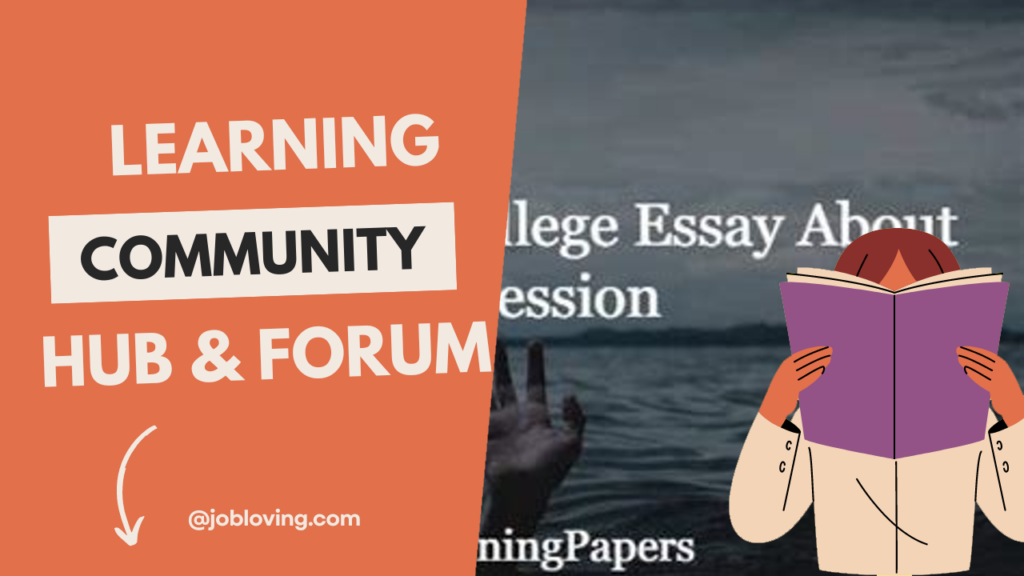Feeling unsure about whether to dive into your personal struggles with depression in your college essay? Well, you’re not alone! Many students find themselves wrestling with how much of their inner life to share with admission committees. On one hand, it can be cathartic to express yourself, but on the other, you might worry about how it will be perceived. The good news? You’ve got options!
The Short Answer: It’s your choice!
When it comes to mentioning depression in your college essay, there’s no obligation to disclose your mental health issues. Admissions committees won’t explicitly ask about your struggles with mental health or disabilities, so whether you choose to share that part of yourself is entirely up to you.
Deciding to talk about depression can provide a rich backdrop for your essay, showcasing resilience, personal growth, and the unique perspective you’ve gained through your experiences. However, it’s essential to ensure that the topic doesn’t overshadow other aspects of your application or come across as simply a sob story.Think about how discussing this topic fits into the overall narrative you’re trying to convey. Does it complement your strengths and aspirations? Does it show how you’ve thrived despite challenges? If you can answer yes to these questions, then it might be worth considering!
In conclusion, revealing personal mental health struggles in your college essay is not a requirement; instead, it’s a personal choice that can ultimately enrich your application if executed thoughtfully. Whatever you decide, remember that authenticity shines brighter than any scripted tale! And hey, if you have more questions or need guidance as you navigate your college journey, join the JobLoving community for more resources and support!
Key takeaways about Should you mention depression in college essay?
Emphasis on Resilience and Growth
- Focusing on overcoming challenges rather than just struggles makes essays more compelling and unique.
- Admissions officers prefer personal growth stories over mere descriptions of mental health struggles in essays.
- Highlighting resilience and proactive measures taken during struggles can enhance the overall narrative of the essay.
- Essays that show character development through adversity can resonate more with college admissions committees.
- Balancing vulnerability with strength can create a powerful narrative in college application essays.
- Reflecting on personal growth and lessons learned from mental health struggles can enhance essay quality.
- Successful essays balance the narrative of struggle with two-thirds focus on solutions and personal growth.
- Share how you engaged in extracurriculars during tough times to showcase resilience and adaptability.
- A positive transformation narrative can resonate more with admissions officers than a sob story approach.
- Colleges seek students who demonstrate maturity and resilience through their personal challenges and experiences.
Authenticity and Personal Insight
- Specificity in discussing personal experiences with depression can elevate an essay’s impact and authenticity.
- Authenticity in sharing mental health experiences can be beneficial if framed positively with growth.
- Universities appreciate essays that convey a sense of hope and proactive problem-solving.
- Thoughtful reflection on mental health topics can reveal deeper insights into personal resilience and determination.
- Mental health topics can be seen as cliché if not approached with personal insight and growth.
- Colleges may reject applicants who highlight mental illness without demonstrating effective coping mechanisms and recovery.
- Admissions essays should prioritize the applicant’s journey towards stability over the challenges faced along the way.
- Sharing personal growth stories can provide context to academic experiences and showcase character and values.
- Admissions officers appreciate essays that emphasize personal growth rather than portraying oneself as fragile or self-absorbed.
Concerns and Risks
- Discussing mental health in college essays can raise concerns about student stability and performance.
- Mentioning mental illness can lead to red flags for colleges regarding student well-being and risk.
- Schools are wary of admitting students who may struggle with mental health on their campuses.
- Admissions officers prefer stories of overcoming challenges rather than detailing struggles with mental health.
- Essays should avoid triggering details and instead highlight resilience and positive outcomes from challenges.
Creating a Unique Narrative
- Unique experiences beyond mental health struggles can make a college essay stand out more effectively.
- The phrase “write about scars, not wounds” encapsulates the preferred approach to discussing mental challenges.
- Focus on growth from mental health challenges instead of dwelling on the struggles themselves.
- Mental health struggles are common; unique perspectives and responses to them are what stand out.
Overall Narrative Strategy
- College essays should focus on the journey and transformation rather than solely the struggle itself.
- Discussing mental health should emphasize personal growth rather than portraying oneself as fragile or self-absorbed.
- The narrative should ensure the applicant appears as a proactive individual rather than a liability.
- Admissions officers prefer personal growth narratives that show how applicants emerged stronger.

